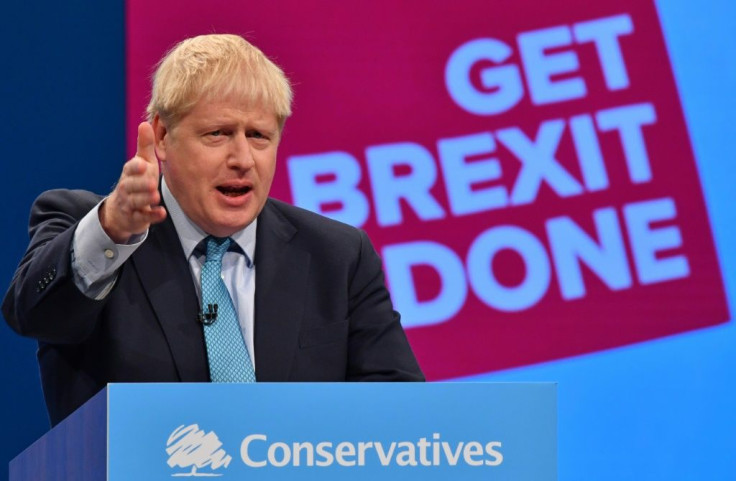Johnson's Brexit Strategy Faces Legal, Time Constraints

Prime Minister Boris Johnson on Friday faced fresh court action to stop him taking Britain out of the European Union without a deal as chances of an agreement faded with a warning from Brussels that he had just a week to flesh out his new Brexit plans.
The British leader came to power in July promising to deliver Brexit by the twice-delayed October 31 deadline at any cost.
Fears of a messy divorce prompted parliament to force Johnson to ask the other EU leaders for an extension if no new agreement comes out of their October 17-18 summit in Brussels.
Johnson has said he will both respect the law and take Britain out by the deadline -- a contradiction that prompted speculation the government may have spotted some way out.
Lawyer Jo Maugham -- a Brexit opponent who is challenging Johnson in Scotland's top civil court -- is trying to make sure all such loopholes are closed.
Maugham posted documents on Twitter on Friday showing Johnson telling the Scottish court that he will seek a delay if there is still no deal by October 19.
Johnson's submission to the Court of Session in Edinburgh says he "accepts that... he will send a letter (asking for an extension) by no later than 19 October 2019".
UK media believe Johnson could still try to get Brexit done on time by sending a second letter stating he did not want the extension and was only following the law.
Others think he could ask one of the EU leaders to veto the extension.
An extension needs unanimous support and some believe Johnson might approach a eurosceptic such as Hungarian Prime Minister Viktor Orban for help.
Johnson's office did little Friday to quash such talk.
An unnamed "senior Downing Street source" told the BBC on Friday that parliament's legislation "can be interpreted in different ways".
"The government is not prevented by the (law) from doing other things that cause no delay, including other communications, private and public," the source said.
Many expect the issue to ultimately end up in the UK Supreme Court.
Its judges have already delivered Johnson a blow by ruling last month that his five-week suspension of parliament was designed to stifle Brexit debates and broke the law.
'Not enough progress'
Much of what happens in the three-year saga now depends on whether Brussels agrees to open formal talks on the brand new Brexit plan Johnson unveiled Wednesday.
EU leaders have voiced serious doubts that his approach to resolving the vexing Irish border issue can work.
The 1998 Good Friday Agreement ended three decades of sectarian violence between republicans wanting a united Ireland and unionists set on keeping Northern Ireland as part of the UK.
It effectively created an invisible border between north and south. Keeping it open and free-flowing has become a key sticking point.
Diplomats in Brussels told AFP that Johnson's real deadline to draw up a jointly-agreed legal Brexit text is now just a week.
The October 17-18 summit's agenda will be set next Friday. European official insists this is not an ultimatum but a simple fact of how the Brussels diplomatic calendar works.
They also note that actual negotiations on Johnson's new plan have not even begun.
"There has not been enough progress to begin a negotiation," a European Commission official said.
The frustrating confusion over Brexit has seen some leaders who had been more sympathetic to Britain's plight to question the need to delay the whole process further still.
"We will only consider a new deadline if a solution is in sight," Dutch Prime Minister Mark Rutte said Friday.
"We are against a delay just for the sake of delay."
© Copyright AFP 2024. All rights reserved.





















